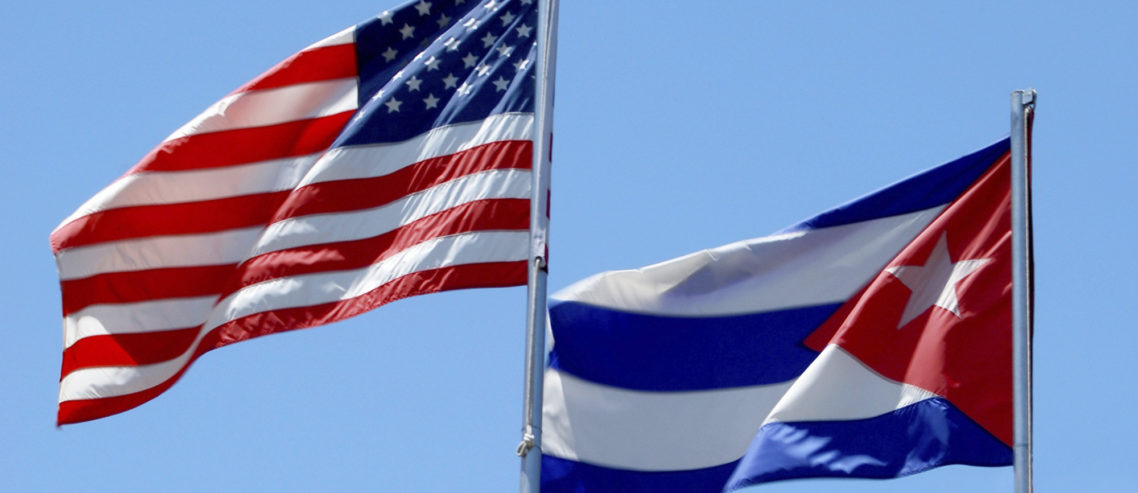Wall Street Journal Editorial, BIDEN SHOULD RETURN TO ENGAGEMENT WITH CUBA
It would
benefit ordinary Cubans and put the onus on the regime to respond.
By Editorial Board , Wall Street Journal
March 11, 2021, 8:00 a.m. EST
Original Article: Engagement with Cuba

House
Democrats are reportedly pressing
President Joe Biden to reverse U.S. policy on Cuba once again, returning to the
detente that prevailed before Donald Trump took office. Biden should indeed
take the first steps toward renewed openness — and put the onus on Cuba’s Communist
leaders to respond.
As with
so many of his predecessor’s policies, Trump was quick to declare the Obama
administration’s rapprochement with Cuba a “bad deal” and began dismantling it
wholesale, imposing or re-imposing more than 200 restrictions on travel, trade, and financial and
diplomatic ties. The clampdown won Trump votes in southern Florida,
but by almost any other measure it failed. Cuba’s Communist regime remains
firmly entrenched. If anything, it’s grown even more dependent on U.S. rivals
Venezuela, Russia and China. Hardliners in Havana have continued to crack down on dissent.
Cuban entrepreneurs flourished when Americans were allowed to visit the island,
but the combined impact of revived U.S. restrictions and the pandemic have left
them struggling.
None of
this serves U.S. interests. Under Obama, the U.S. and Cuba struck more than 20
agreements that addressed U.S. security concerns, on issues ranging from
counter-narcotics to the environment. Biden should open the door to renewing
such cooperation.
That will
require lifting Cuba’s designation as a state sponsor of terrorism, which the
Trump administration imposed in its closing days with no real justification.
Biden will also need to restore frayed diplomatic ties — appointing an
ambassador, staffing up the U.S. embassy (taking additional security
precautions while the cause of a mysterious illness that
struck U.S. diplomats in recent years remains under investigation), and resuming
consular services so Cubans can travel to the U.S. again. The two sides should
cooperate on public health to combat the pandemic and restart talks on security
issues.
Further
opening should focus for now on improving the lives of Cubans on and off the
island. The administration should lift restrictions on remittances. And it should allow
travel to the island, because American visitors are good for local enterprise.
That means permitting flights to cities other than Havana and people-to-people
exchanges, while drawing up a shorter “restricted list” of
entities with which Americans are forbidden to do business.
Cuba
shouldn’t expect the U.S. to lift more targeted sanctions, however, let alone
the decades-old embargo — whose provisions are now codified into U.S.
law — unless it begins to move, too. Among other things, that means
addressing certified claims for property seized after the 1959 revolution, now
estimated at nearly $9 billion with
interest. Cuba’s leaders should play a constructive role in resolving the
Venezuelan crisis and improve their record on human rights at home. The
government has recently taken some steps to rationalize the country’s currency system and promote
the private sector, but should
do more to open the economy to outside investment. The Communist Party
transition next month, when 89-year-old Raul Castro is scheduled to step down, offers a moment
for the regime to affirm its intention to reform.
Stubborn
and suspicious as they may be, Cuba’s leaders should remember two things.
First, all these measures are in their nation’s own best interests. Second, any
thaw in relations will be temporary unless Biden can point to results. The
Cuban regime made a big mistake in failing to build on Obama’s initiative,
leading many in the U.S. to conclude that engagement
was pointless. The next detente will fail unless it benefits Americans and
Cubans alike.



Comments
Comments for this post are closed.